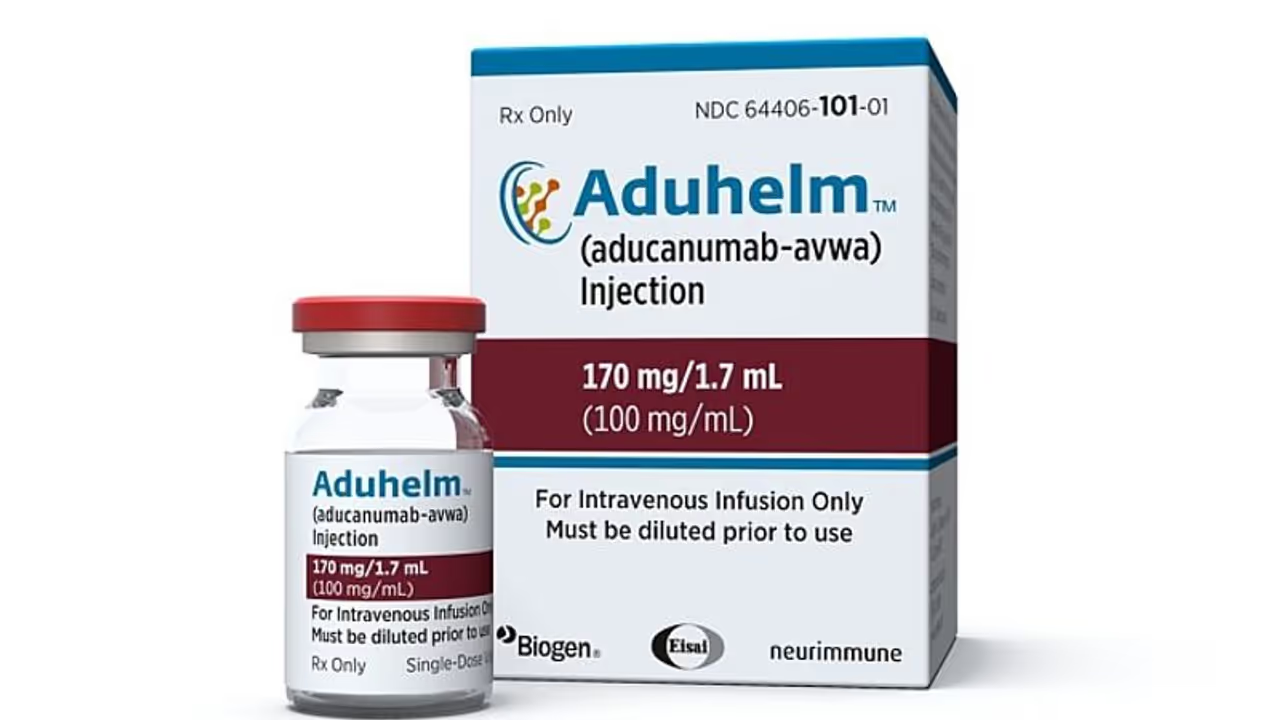The drug has been approved using the FDA's 'accelerated approval' method which basically provides patients early access to the medicine while further research and final clinical trials continue.
The United States Food and Drug Administration has approved Aduhelm (aducanumab) for the treatment of Alzheimer's disease, a progressive neurodegenerative disease that destroys the brain's neurones and cells and impairs cognitive abilities and memory.

The drug has been approved using the FDA's 'accelerated approval' method which basically provides patients early access to the medicine whilst further research and final clinical trials continue. If at the end of the trial, the efficacy of the drug cannot be proven then the drug can be pulled from the market. The FDA has not approved medication and novel treatment for the disease since 2003.
What is the drug and what does it do?
Aduhelm has been jointly developed by Biogen, an American biotechnology company, and Eisai, a Japanese pharmaceutical company. It works by removing the sticky deposits (plaque) of the protein, amyloid-beta from the brain.
The drug has been developed to treat only mild cognitive impairment which is the early stages of the disease. It is not meant to treat severe dementia but will only slow down the progression of the disease and also ease symptoms.
Earlier in 2019, Biogen stopped the development of the drug following an assessment that Phase 3 trials were going to fail. But several months later, the company announced that a new analysis worked and then sought regulatory approval from the FDA.
How much will it cost?
According its developer, Biogen, the drug given through infusions will cost approximately $4,312 (Rs 3,14,249) per infusion which is $56,000 (Rs 40,81,165) per year for a high dose.
The infusions are to be given every four weeks. However, those individuals with commercial insurance can get the drug at a low or zero cost. Those with Medicare, which is the US government's health insurance scheme for those aged above 65, can also get it at subsidised rates.
Is it actually effective?
There has been an ongoing debate on the drug's efficacy and whether the clinical trials conducted were enough to allow the drug to enter the market.
An earlier FDA committee, the Peripheral and Central Nervous System Drugs Advisory Committee, was asked to evaluate the drug's effectiveness and whether data from one positive study was enough to prove its efficacy in the treatment of the disease. Not a single member voted yes while one was uncertain.
Dr Caleb Alexander, a drug researcher at John Hopkins who was on the advisory committee that voted against the drug, said that he was surprised and disappointed as the evidence simply did not prove the drug's efficacy.
Dr Patrizia Cavazzoni, the director of the FDA's Center for Drug Evaluation and Research said that even though there has been debate in the public realm about the approval of the drug the FDA has followed protocol and 'concluded that the benefits of Aduhelm for patients with Alzheimer's disease outweighed the risks of the therapy'.
The drug will have to undergo Phase 4 trials. If it does not prove that the drug works, then the FDA can rescind it.
Are there any side-effects?
According to Biogen, the most commonly seen side-effect is temporary swelling in the brain which the company claims usually resolves over time. Some drug users may also have small spots of bleeding in or on the surface of the brain with the swelling.
Some people may also have symptoms like headache, confusion, dizziness, vision changes, and nausea.
The effects of the medication on pregnant women is yet unknown.
